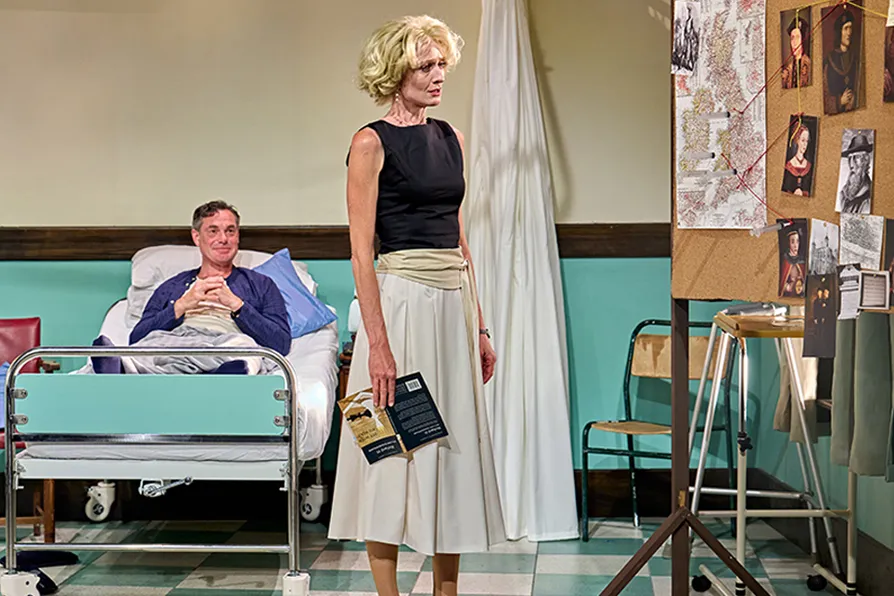RITA DI SANTO draws attention to a new film that features Ken Loach and Jeremy Corbyn, and their personal experience of media misrepresentation
PAUL DONOVAN relishes the spectacle of a 1950s detective in pursuit of a 500-year-old murder mystery

 1950S GLAMOUR: Rob Pomfret and Rachel Pickup in Daughter of Time [Pic: Manuel Harlan]
1950S GLAMOUR: Rob Pomfret and Rachel Pickup in Daughter of Time [Pic: Manuel Harlan]
Daughter of Time
Charing Cross Theatre, London
★★★★★
THE resounding theme of this excellent production of Daughter of Time is how the victors always write the history. The dramatisation of Josephine Tey’s 1951 novel focuses on the traditional portrayal of Richard III as a monster who had his nephews, the princes in the tower, murdered.
The main narrative centres around Inspector Alan Grant (Rob Pomfret), who is laid up in a hospital bed, after suffering an injury at work. Bored, he decides to investigate the case of Richard III. A variety of characters are brought in on the action, as the hospital ward transforms into a court room.
The main characters include a fellow police officer, Sergeant Williams (Sanya Adegbola), American researcher Brent Carradine (Harrison Sharpe) and the nurses. The actors Marta Hallard (Rachel Pickup) and Nigel Templeton (Noah Huntley) also figure, further stirring the interest in Richard III, with the latter simultaneously playing Richard in Shakespeare’s play of the same name.
There is also a romantic subplot involving Hallard, Grant and Templeton, which grates a little at times.
The central focus is the investigation of the case, with the traditional sources that have been used to portray Richard as a monster being debunked. Central to these are the works of Thomas More and Shakespeare, who come out of the examination as propagandist-in-chiefs for the Tudors, rather than recorders of historic fact.
The plot moves along at a decent pace, with a good interaction between the different investigators. One critical point is the complexity of the different threads that can end up losing the audience; so, on entering the theatre, everyone receives a handout of the Richard III and Anne Neville family tree — a vital aide de memoire in following the twists and turns of the play.
In 1990, Tey’s book, her last, was voted number one among the 100 best crime novels of all time by the British Crime Writers Association, so there is much to live up to.
This adaptation by M Kilburg Reedy does well in encapsulating the main points as well as elaborating a few. It is a difficult path to tread with a story so clearly set in the 1950s, when the police were held in greater regard then than now.
It is, for instance, ironic, given the play’s focus on a major miscarriage of justice, that the reputation of the police has taken such a severe knock over the succeeding decades, in no small part due to a series of miscarriages of justice in which they have played a leading role.
Pomfret’s portrayal of Grant is about right, if a little earnest. The 1950s touch gives him, at times, a resemblance to an ambling Humphrey Bogart.
The whole plot revolves around the hospital bed, with the main suspects board appearing in the corner. The space is used well, with slick changes to scenes at the Ivy, and and with Templeton in almost Faustian mode, as he delivers Shakespeare’s version of Richard III.
Director Jenny Easton has done a fine job in bringing this tale together in a fast moving production that keeps the audience engaged from the start.
Tey’s book is a fascinating read. This adaptation does it more than justice even if allowance must be made for the passing of time. But, then again, isn’t that just the point?
Well worth seeing.
Runs to September 13. Box Office: 08444 930 650, charingcrosstheatre.co.uk










